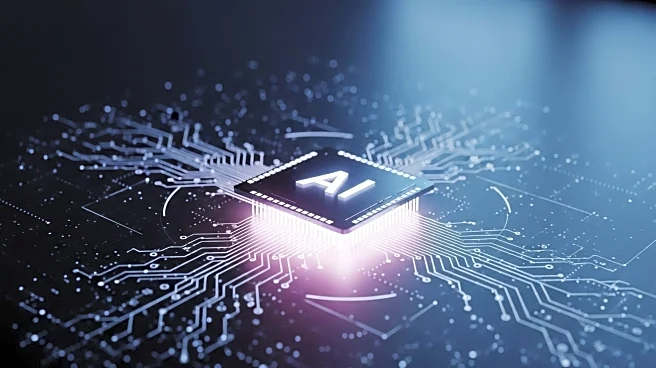What is the story about?
What's Happening?
Walmart CEO Doug McMillon has issued a stark warning about the transformative impact of artificial intelligence (AI) on the workforce. Speaking at a conference in Bentonville, Arkansas, McMillon emphasized that AI is set to change every job, potentially eliminating some roles while creating new ones. Walmart, the largest private employer in the U.S., is preparing for these changes by tracking job trends and planning additional training for its workforce. The company aims to maintain its global workforce of approximately 2.1 million employees over the next three years, despite anticipated revenue growth. However, the composition of jobs is expected to shift significantly. Walmart has already implemented AI in various areas, such as supply chain management and customer service, and is exploring further automation in its operations.
Why It's Important?
The integration of AI into Walmart's operations highlights a broader trend in the retail and service industries, where automation is increasingly influencing job structures. This shift could lead to significant changes in employment patterns, with some roles becoming obsolete while others emerge. For employees, this means adapting to new technologies and potentially acquiring new skills to remain relevant in the job market. For Walmart, leveraging AI could enhance efficiency and customer service, potentially leading to increased profitability. However, the transition also poses challenges, such as ensuring that employees are adequately trained and that the human element in customer interactions is preserved. The company's approach to balancing AI integration with workforce stability could serve as a model for other large employers navigating similar changes.
What's Next?
Walmart plans to continue its gradual integration of AI, particularly in customer service roles, which are expected to become more AI-dependent. The company is also exploring automation in back-of-store tasks and has created new roles, such as 'agent builders,' to support its AI initiatives. As these changes unfold, Walmart will need to address potential workforce concerns, such as job displacement and the need for retraining. The company's strategy and its impact on employees will likely be closely watched by other businesses and industry analysts. Additionally, Walmart's decisions could influence public policy discussions on AI and employment, particularly regarding worker protections and training programs.















